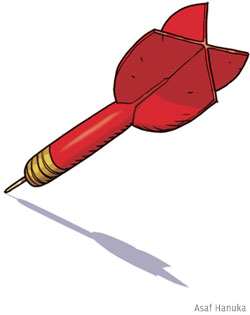Sign up for The Media Today, CJR’s daily newsletter.

Much ado…
On March 21, The Orange County Register published a blog post, based on the sworn affidavit of a process server, alleging that Julio Perez, a California state Assembly candidate, did not live where he said, or within the district he was running to represent.
Reporter Brian Joseph packed his story with details and links to testimony. But the Register didn’t have a reporter make the 2.4-mile trip to the home in question (Joseph is based in Sacramento, so couldn’t have done it himself). Had editors bothered, they would have found—as a reporter for the nonprofit Voice of OC did—plenty of evidence that it was indeed Perez’s place: bills, neighbors, the candidate himself.
It took the Register two days to “update” its story, which it did in petulant fashion by (finally) dispatching a reporter to the residence to grill the candidate about which brand of toothpaste was in the bathroom and what drinks were in the fridge. Perez nailed it: Colgate and Cherry Coke Zero. (Joseph insists the story isn’t over, but even if that’s true, his paper blew round one.)
Google it, man!
For the record, 14-year-old V. A. Shiva Ayyadurai did not invent e-mail. Seems obvious, but it took The Washington Post a mind-boggling half a month to untangle the truth behind a February 17 story by Post Innovations editor Emi Kolawole headlined: “Inventor of E-mail Honored by Smithsonian.”
Not exactly. Ayyadurai copyrighted an electronic-messaging system called “Email,” but he did so years after real “e-mail” was invented; and Ayyadurai was “honored by the Smithsonian” only in that the institution accepted his donation of email-related artifacts.
Compounding the gaffe was the glibness of Post ombudsman Patrick Pexton’s initial response to reader complaints. He found more fault with the outraged commenters than with the flawed reporting, which he defended as the heroic effort of an overworked journalist: “Could you, as Ms. Kolawole did, do all this in one day?” he wrote. “Write a story, edit seven videos, and write up a transcript of her Q&A session with Ayyadurai?”
A week later, Pexton published a more level-headed response, in which he admitted that his original post was “dismissive, snarky and wrongheaded.” Maybe he was overworked, too.
Has America ever needed a media defender more than now? Help us by joining CJR today.


